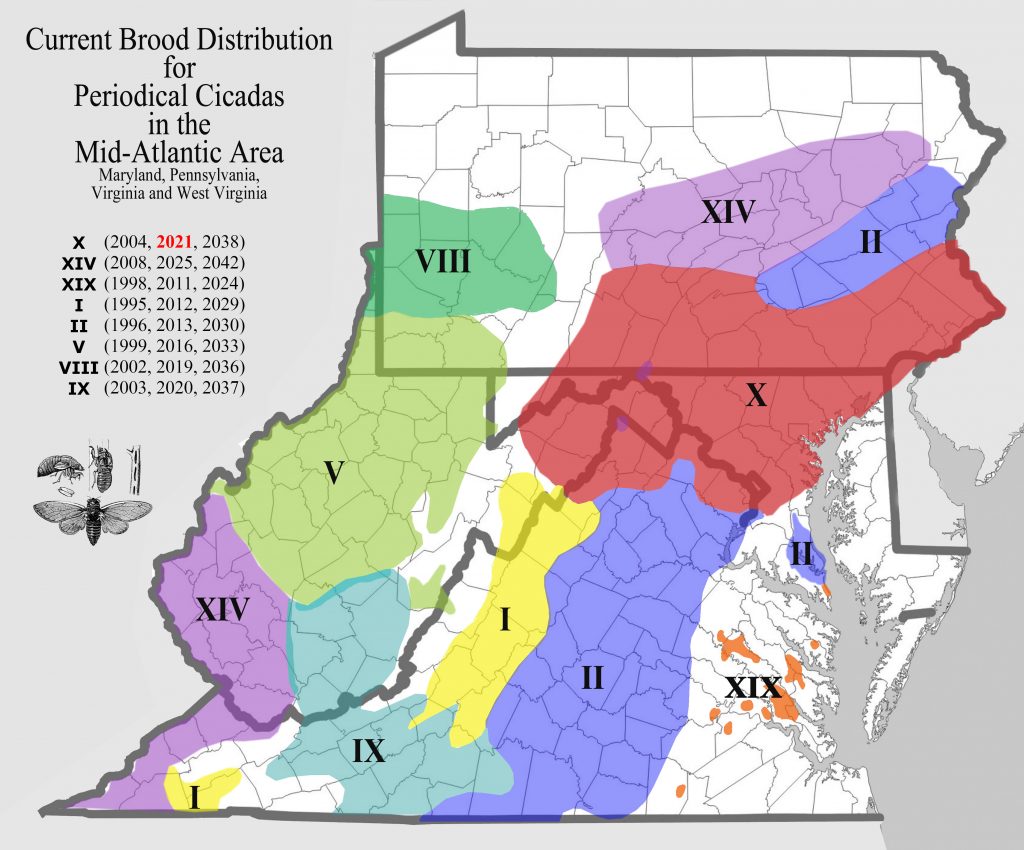Gov Hogan Declares May & June Maryland Magicicada Months; Not So Much the Shore Areas

Governor Larry Hogan has declared May and June of this year as Maryland Magicicada Months – to recognize the return of the 17-year periodical cicada – and to generate public awareness. These Brood X periodical cicadas are ONLY found in the Eastern US and they emerge from the ground once every 17 years. In Maryland they will begin to emerge early this month – and will die off by the end of June. Numbers will vary from place to place – they do not chew, bite or sting and are not a threat to humans, pets, animals or most plants.
According to Wikipedia – “Brood X, the Great Eastern Brood, is one of 15 broods of periodical cicadas that appear regularly throughout the eastern United States. It has the greatest range and concentration of any of the 17-year cicadas.”
Looking at the Brood X Map – much of Delaware and Maryland’s Eastern Shore will be spared the Brood X cicada.
For those living in areas with Brood X populations, here is what to expect during their life cycle:
- They will appear over a few weeks. Brood X cicadas synchronously emerge in large numbers as part of a predator satiation strategy. By coordinating their emergence, the sheer number of cicadas will allow for many to be eaten by predators while some of the population survives to procreate. Cicada predators include some birds, reptiles, amphibians, mammals, and other insects.
- They will be loud. Once they are fully grown, male cicadas “sing” their mating call to attract females, making a loud chorus that can reach a volume as high as 105 decibels. This is comparable to a lawn mower, leaf blower, or chainsaw. These sounds will usually last from late May to late June and will be loudest in the afternoon.
- They are lousy flyers. Brood X cicadas are lousy flyers so they will likely run into windows, cars, buildings, and people. If one lands on you, simply brush it off.
- There will be a ton of cicada carcasses. Once the Brood X cicadas die in later June, there will be billions of carcasses decomposing on the ground and they may give off an unpleasant odor.
Do not use pesticides or insecticides to try to kill them—doing so will not be helpful in controlling populations and only poses a threat of harming other helpful, beneficial insects. The best way to dispose of them is by adding their carcasses to a compost pile. For more information and additional resources, visit the Maryland Department of Agriculture’s cicada webpage.


